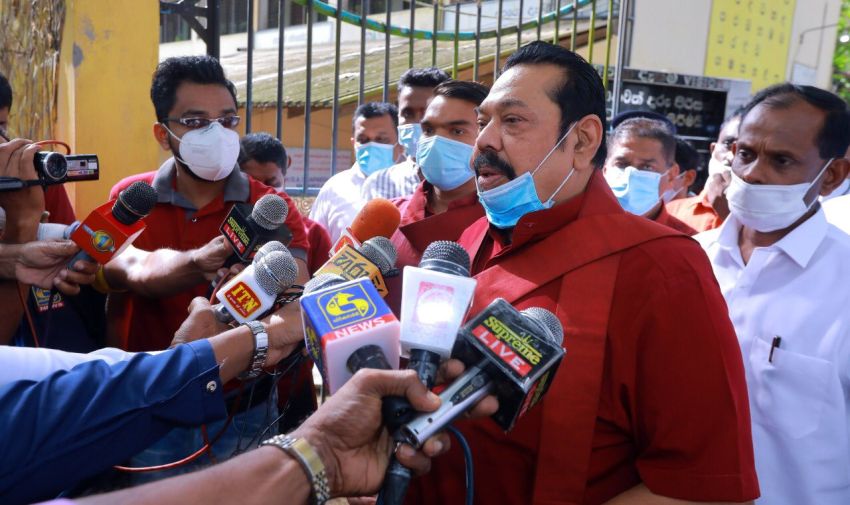
The Sri Lanka Peoples Front (SLPP), a right-wing alliance headed by Prime Minister Mahinda Rajapaksa, received 59.1% of the votes and won 145 seats in Sri Lanka's 225 member legislature at the August 5 election.
In addition to criticising the economic record of the previous government, Rajapaksa appealed to Sinhalese chauvinism, boasting of his role in crushing the Tamil independence movement. He was president of Sri Lanka in 2009, when the Liberation Tigers of Tamil Eelam, a group fighting for an independent Tamil homeland in the north and east of the island, was defeated by government forces in a genocidal massacre of tens of thousands of Tamil civilians.
In 2009 Mahinda Rajapaksa's brother Gotabaya Rajapaksa was defence secretary. Last year he was elected president of Sri Lanka.
The majority of Sri Lankans are Sinhalese Buddhists. The Rajapaksa brothers have appealed to Sinhalese-Buddhist chauvinism, directing hostility against ethnic and religious minorities. In recent years Muslims have been a target. Last year a number of terrorist attacks by a small Muslim group linked to ISIS provided a pretext for increased hostility toward Muslims.
The biggest opposition group in the new parliament is Unity-People Power (SJB), an alliance led by Sajith Premadasa, which won 54 seats with 23.9% of the vote. Much of its support came from religious and ethnic minorities, fearful of discrimination and repression under the Rajapaksa brothers.
Premadasa had been a minister in the United National Party (UNP) government which ruled from 2015 to 2019. He split from the UNP due to leadership rivalry, taking many UNP voters with him. As a result, the UNP won only one seat in the recent election.
The Peoples Liberation Front (JVP), a party claiming to be socialist, received 3.84% of the vote and won 3 seats. While progressive in some ways, the JVP has been hostile to the Tamil struggle for self-determination.
The Frontline Socialist Party, which broke from the JVP in 2012 due to the latter's chauvinist policies, did not win any seats. It obtained 14,522 votes, 0.13% of the total. Other leftist parties got even smaller votes.
Several Tamil parties contested electoral districts in the north and east of the island. The Tamil National Alliance (TNA) won 10 seats, down from 16 in 2015. This was partly due to competition from other Tamil parties that accuse the TNA of not standing up strongly enough for Tamil rights. One such party, the Tamil National People’s Front, won two seats, while another won one seat.
The SLPP victory is likely to result in intensified attacks on Tamil rights. Tamil areas have been under military occupation since 2009, whichever government has been in power. Military bases and Sinhalese settlements have been built on Tamil land. Many Tamils, as well as some members of other ethnic groups, have been imprisoned, tortured or murdered.
However, the UNP government between 2015 and 2019 was a bit less repressive than the Rajapaksa government that preceded it. The Rajapaksa victory in 2020 is likely to make the situation worse.